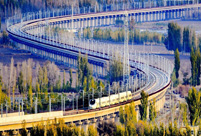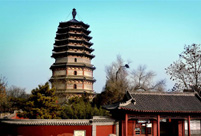

The Export Credit Insurance (ECI) is a common financial instrument that supports exporters in foreign trade and investment as well as overseas contracting projects.
The ECI reduces the payment risks associated with doing business internationally by giving the exporter assurance that payment will be made if the foreign buyer is unable to pay.
The ECI covers risks such as insolvency of the buyer, bankruptcy, or protracted defaults/slow payment, and certain political risks such as war, riots, sovereign default and exchange restrictions that could result in nonpayment.
The ECI provides exporters with receivables protection, risk management and financing support so that exporters can establish market share and compete vigorously in the global market at a reduced nonpayment risk level.
The China Export & Credit Insurance Corporation (Sinosure), which began operations in 2001, is a state-funded policy-oriented insurance company with independent status, established for promoting China’s foreign trade and economic cooperation..
Sinosure’s accumulated insured amount reached $2226.8bn between 2009 and 2015. Sinosure has maintained its number one ranking in terms of total insured amount among all the export credit agencies (ECAs) since 2010.
In this exclusive interview, Sinosure’s South African office shares its views on the outlook of SA-China economic ties and explains how to minimise exchange rate risks against the background of emerging market currency fluctuations.
People’s Daily Online: Capacity co-operation and industrialisation is the direction set by the two presidents for the future economic and trade co-operation between SA and China. The Chinese government has pledged more investment in SA to further enhance the level of industrialisation. What is the role of Sinosure in SA’s industrialisation and what are the sectors in focus?
Sinosure: Judging from what we’ve learnt and the level of economic development of SA, the bilateral co-operation will most likely take place in railway, locomotives, car, and related equipment exportation and maintenance, infrastructure construction such as power plants and ports, which are in accordance with SA’s marine economy strategy and the industrial park economy strategy.
Surrounded by the sea on three sides, SA, at the intersection of two oceans, enjoys significant geographic advantages and rich marine resources. We believe there is broad space for co-operation on the development of a marine economy. For example, China has a world-class manufacturing and management capability in ocean shipping, shipbuilding, repair and renovation.
China not only has extensive experience in coastal oil and gas production, aquaculture, marine resources conservation and management, but also has a huge market demand for all the above, so we believe the opportunity for co-operation should present itself in this field.
In addition, through 30 years’ of practice, China has figured out a set of effective, if not unique, industrialisation methods, especially the “Industrial Park” economy and the “Special Economic Zone” development. For example, Shenzhen has grown from a small fishing village 30 years ago into the largest special economic zone and the fourth largest city in China. Shenzhen, also known as the “Chinese Silicon Valley”, has become the most important part in IT and hi-tech industries’ global layout. We believe an intensified bilateral co-operation could bring some assistance and reference to SA’s industrialisation, economic capacity building and employment creation.
Specific initiatives that will be taken by Sinosure to support bilateral trade and economic cooperation. First of all, we have upgraded SA’s ratings and optimised the underwriting conditions. This means we have realised universal coverage for Africa-bound exportation.
Second, Sinosure provides medium and long-term ECI in the South African currency, the rand, which further clears financing obstacles for Chinese enterprises.
We’ve noticed that Chinese companies are negatively affected by the difficulties in financing in SA’s home currency. To solve this problem, Sinosure recently introduced a pilot programme of direct insurance of receivables and loans in the rand. We believe that through continuous optimisation and adjustments of underwriting policy, Sinosure could provide more direct, stronger support and protection for Chinese exporters and financial institutions.
Third, Sinosure has reinforced its underwriting policies for foreign banks to better meet the diversified financing needs from the Chinese “go global” enterprises.
To make full use of credit insurance’s leveraging function and encourage more commercial funding into the development of China’s foreign trade and economic co-operation, Sinosure will further strengthen its co-operation with foreign commercial banks which we believe will encourage commercial funding to provide more favourable and competitive service when they take part in the projects with Chinese presence.
The bilateral cooperation and the China-Africa co-operation will benefit from an increased opportunities and reduced costs.
 |
 China has world's largest high-speed rail network
China has world's largest high-speed rail network Top beauties in Chinese provinces
Top beauties in Chinese provinces 600 people attend Lusheng playing contest in S China
600 people attend Lusheng playing contest in S China Engineer troop builds bridge in real combat conditions
Engineer troop builds bridge in real combat conditions You can urinate in public in Chongqing
You can urinate in public in Chongqing Rice terrace scenery in southwest China's Yunnan
Rice terrace scenery in southwest China's Yunnan 2016 Miss Chinatown USA pageant held in San Francisco
2016 Miss Chinatown USA pageant held in San Francisco Ancient pagodas across China
Ancient pagodas across China Wedding dress show up in the air
Wedding dress show up in the air Top 20 hottest women in the world in 2014
Top 20 hottest women in the world in 2014 Top 10 hardest languages to learn
Top 10 hardest languages to learn 10 Chinese female stars with most beautiful faces
10 Chinese female stars with most beautiful faces China’s Top 10 Unique Bridges, Highways and Roads
China’s Top 10 Unique Bridges, Highways and Roads Harris is making waves in S.China Sea
Harris is making waves in S.China Sea With new plant, Airbus seeks to secure China market share
With new plant, Airbus seeks to secure China market share Chinese sound off on America’s loudest presidential hopeful
Chinese sound off on America’s loudest presidential hopeful 40 years after Cultural Revolution, repentance of Red Guards is still rare
40 years after Cultural Revolution, repentance of Red Guards is still rareDay|Week